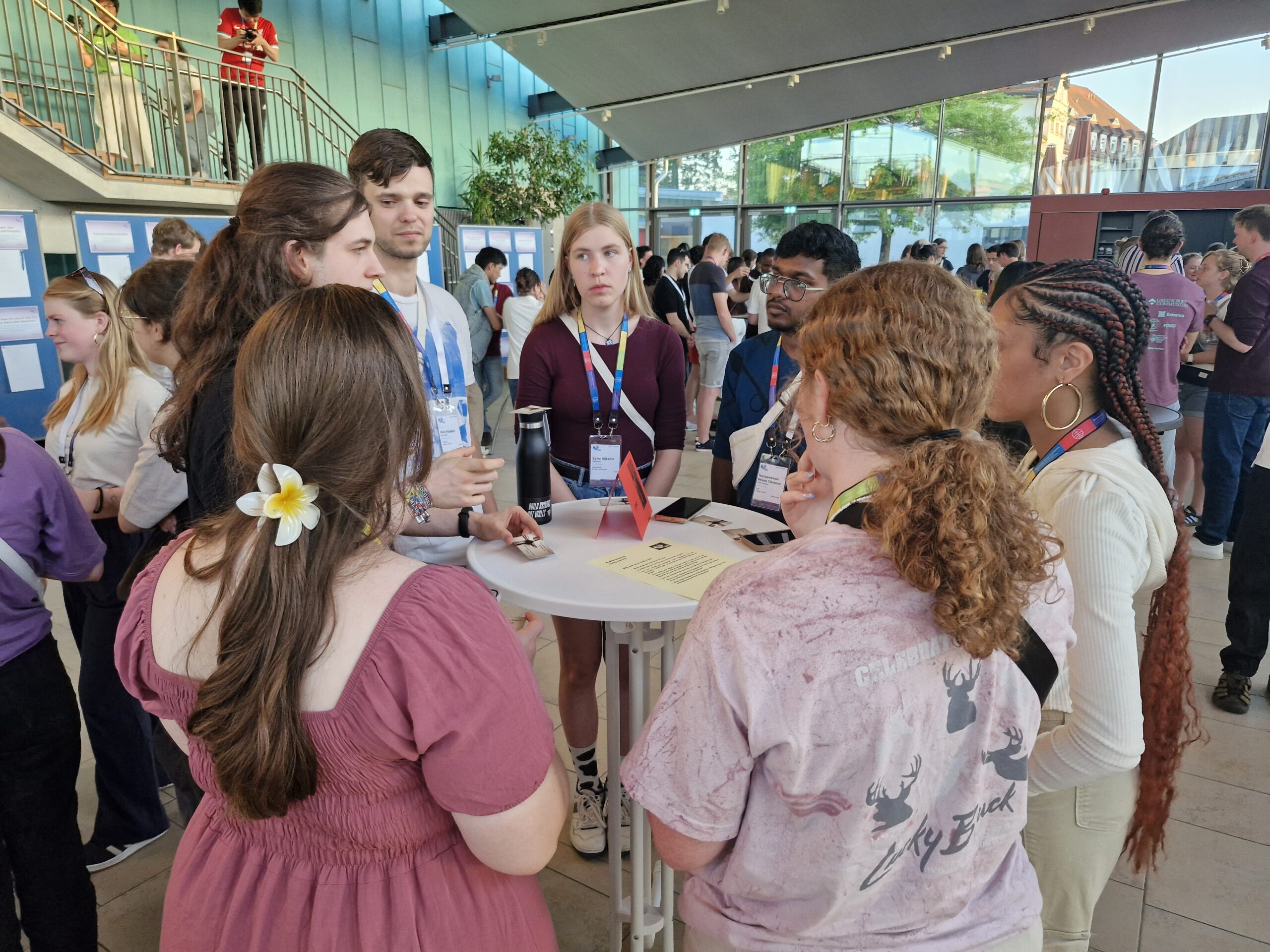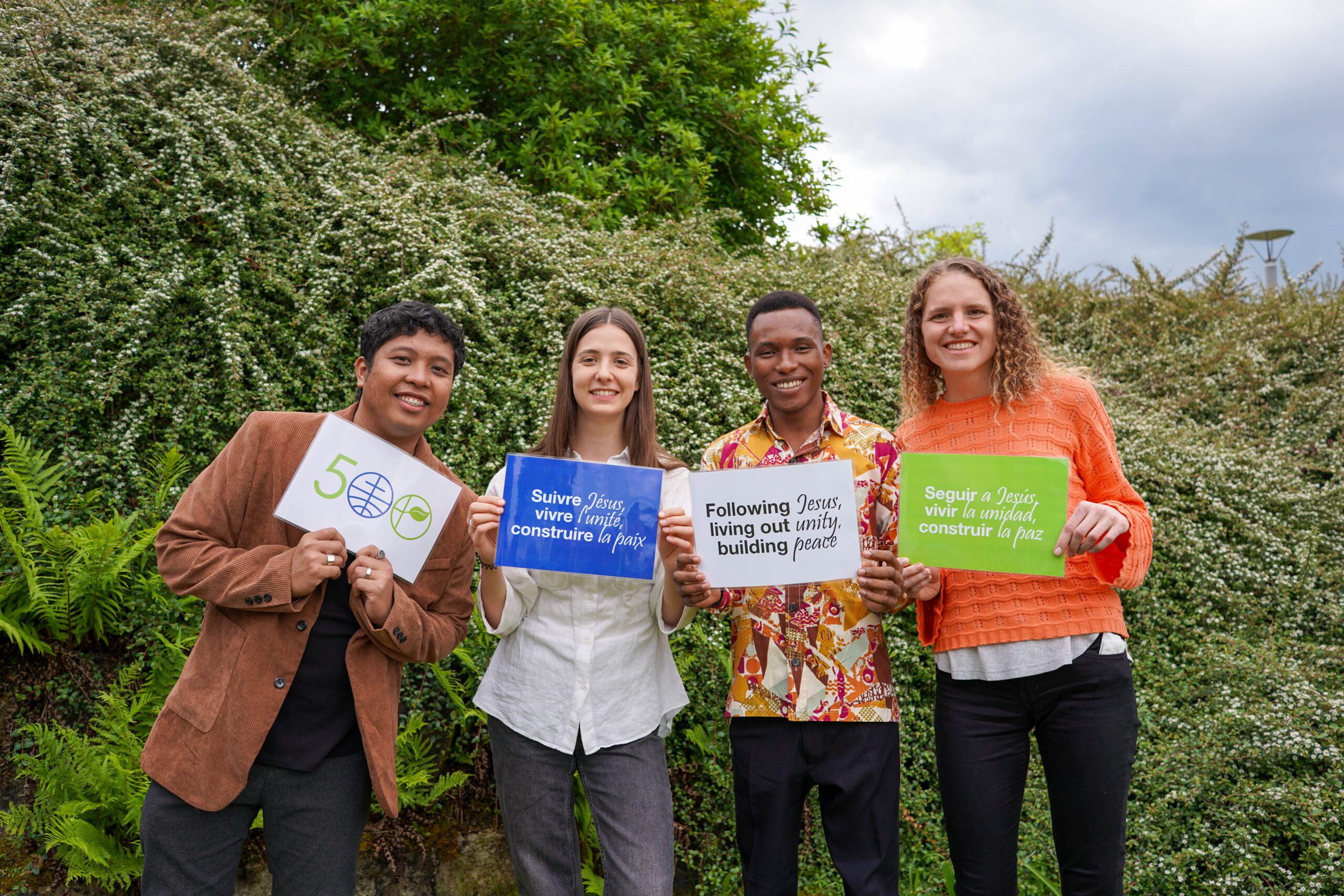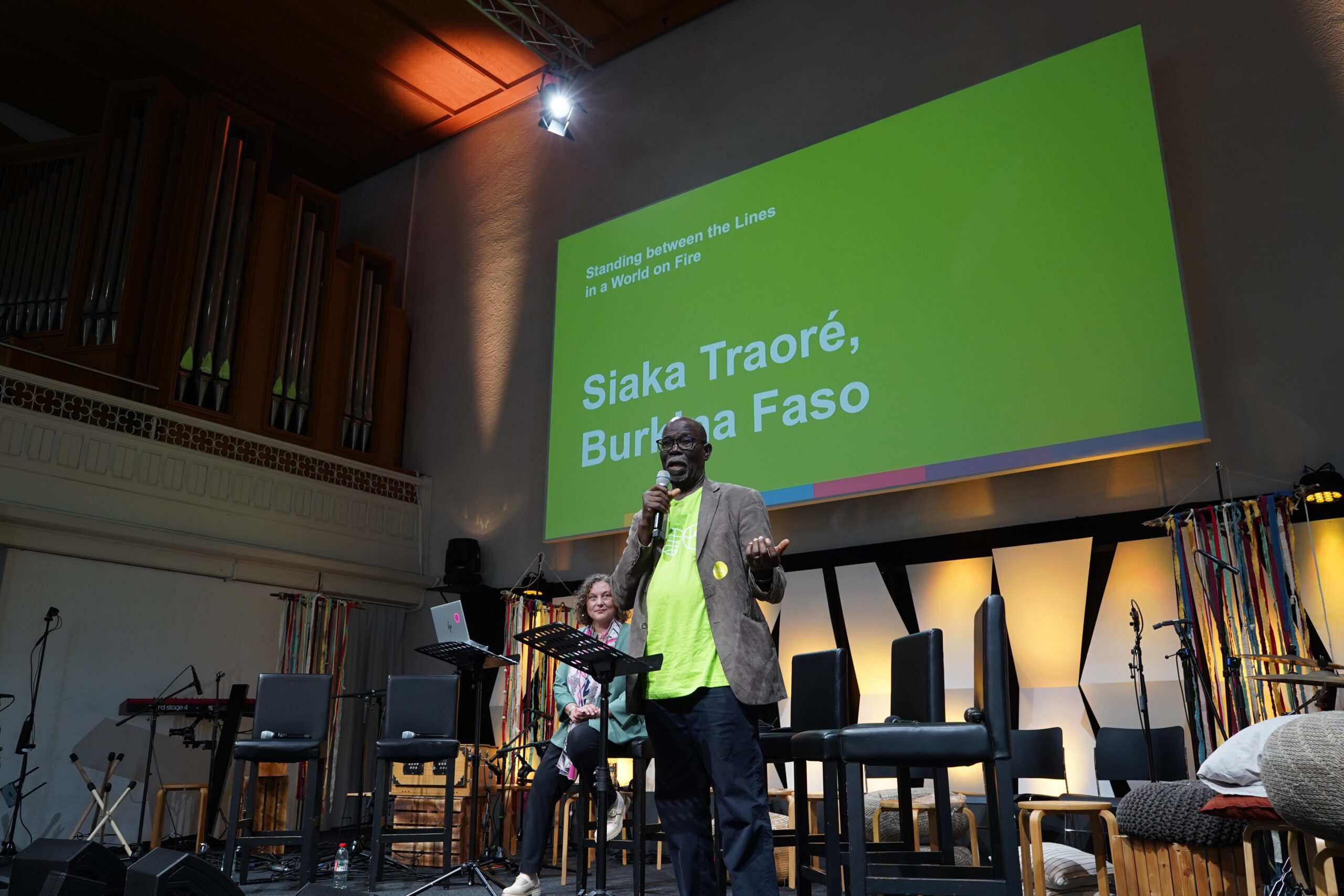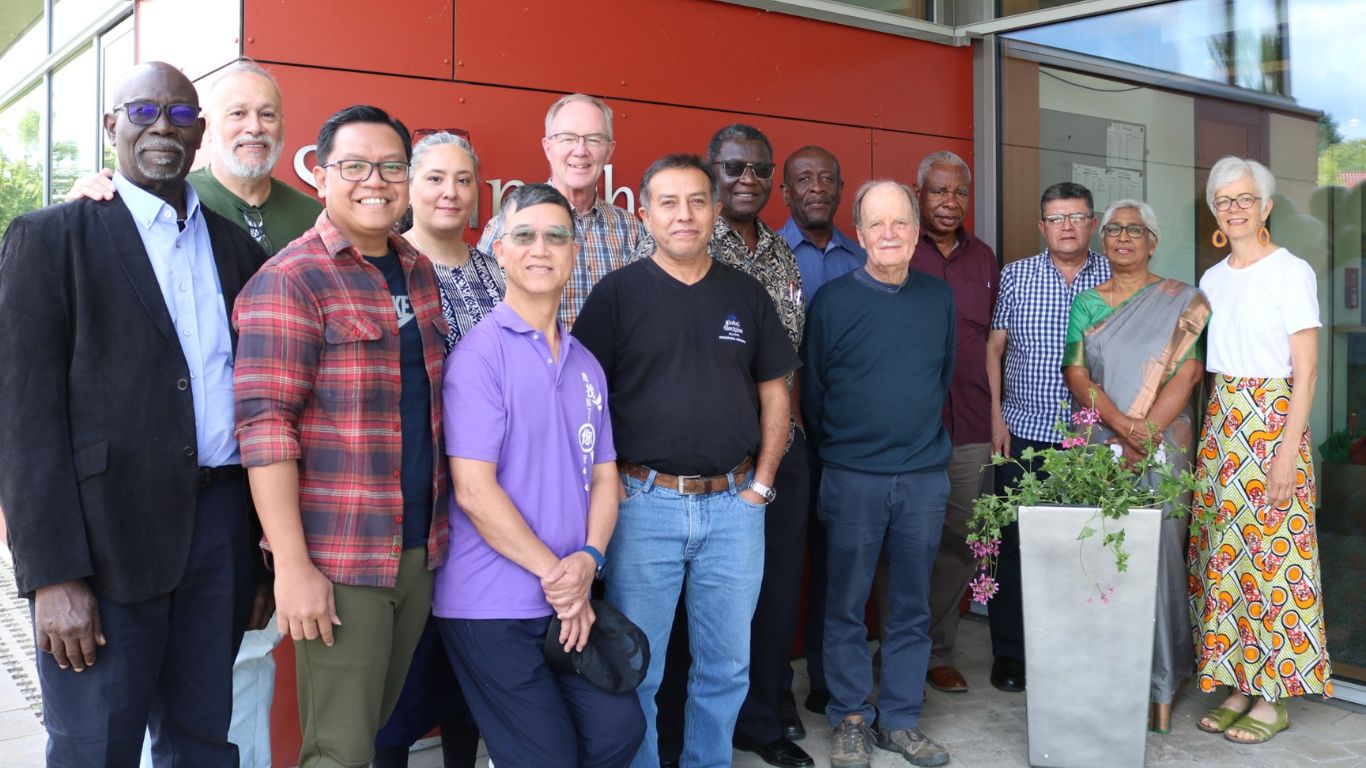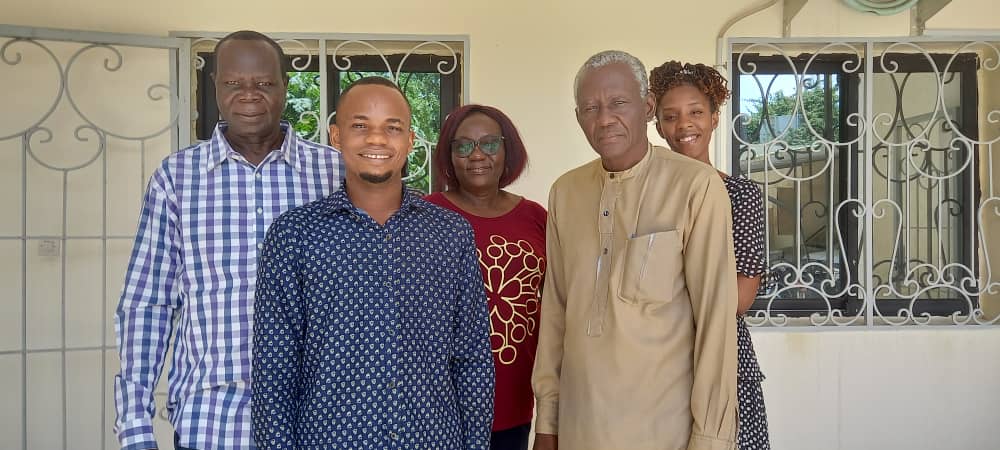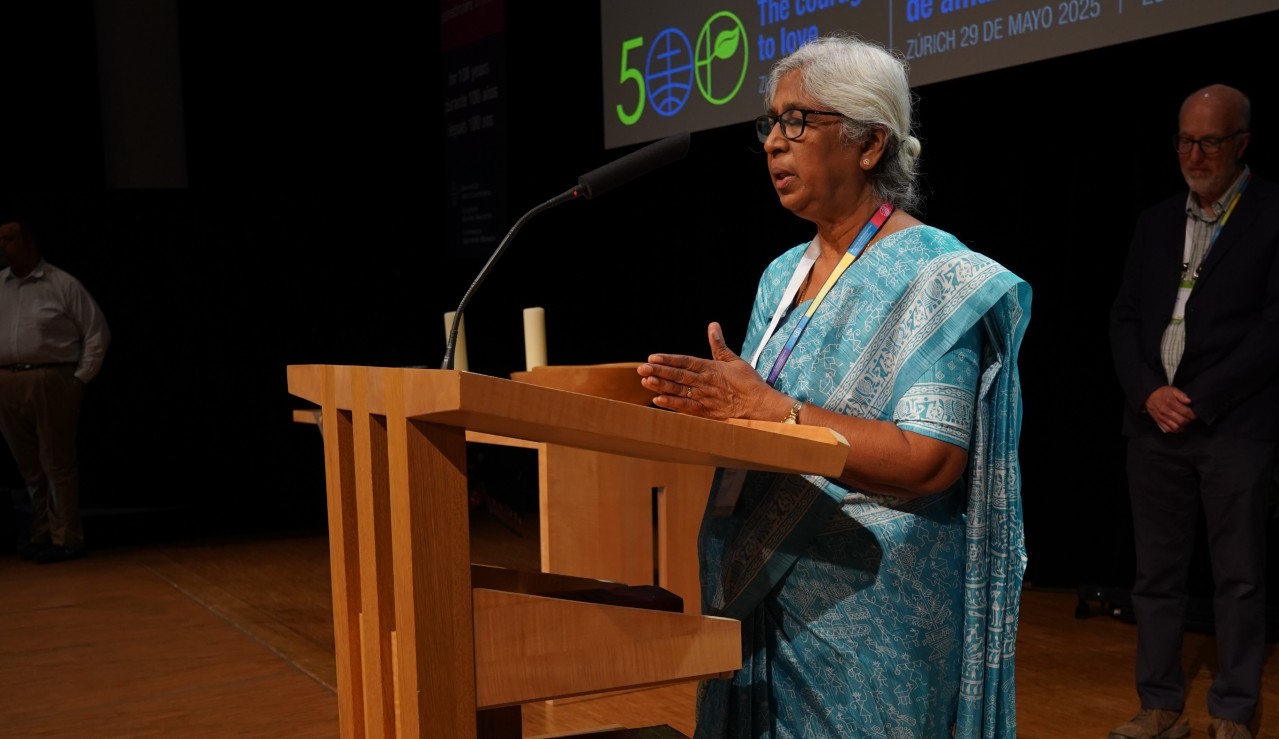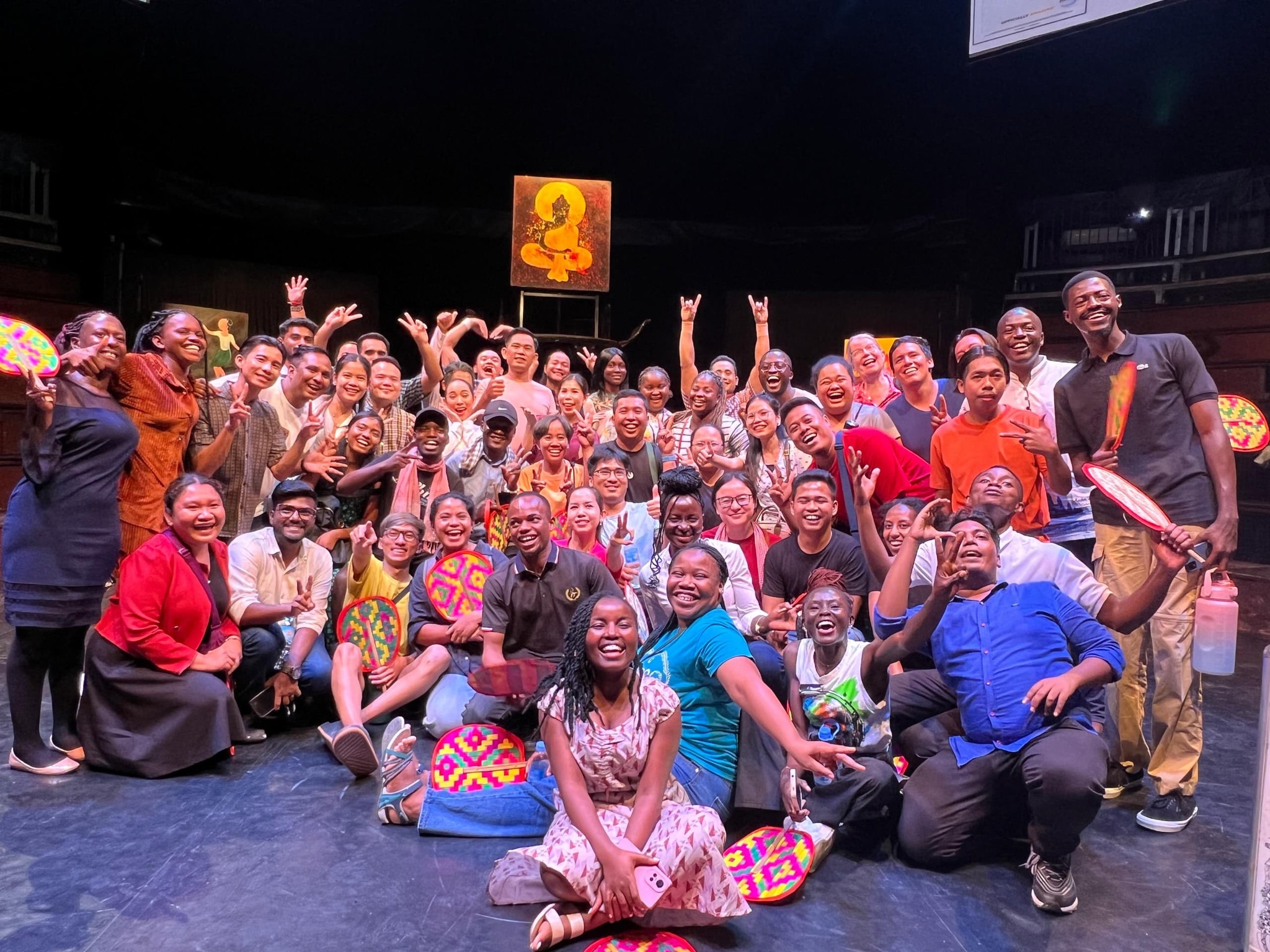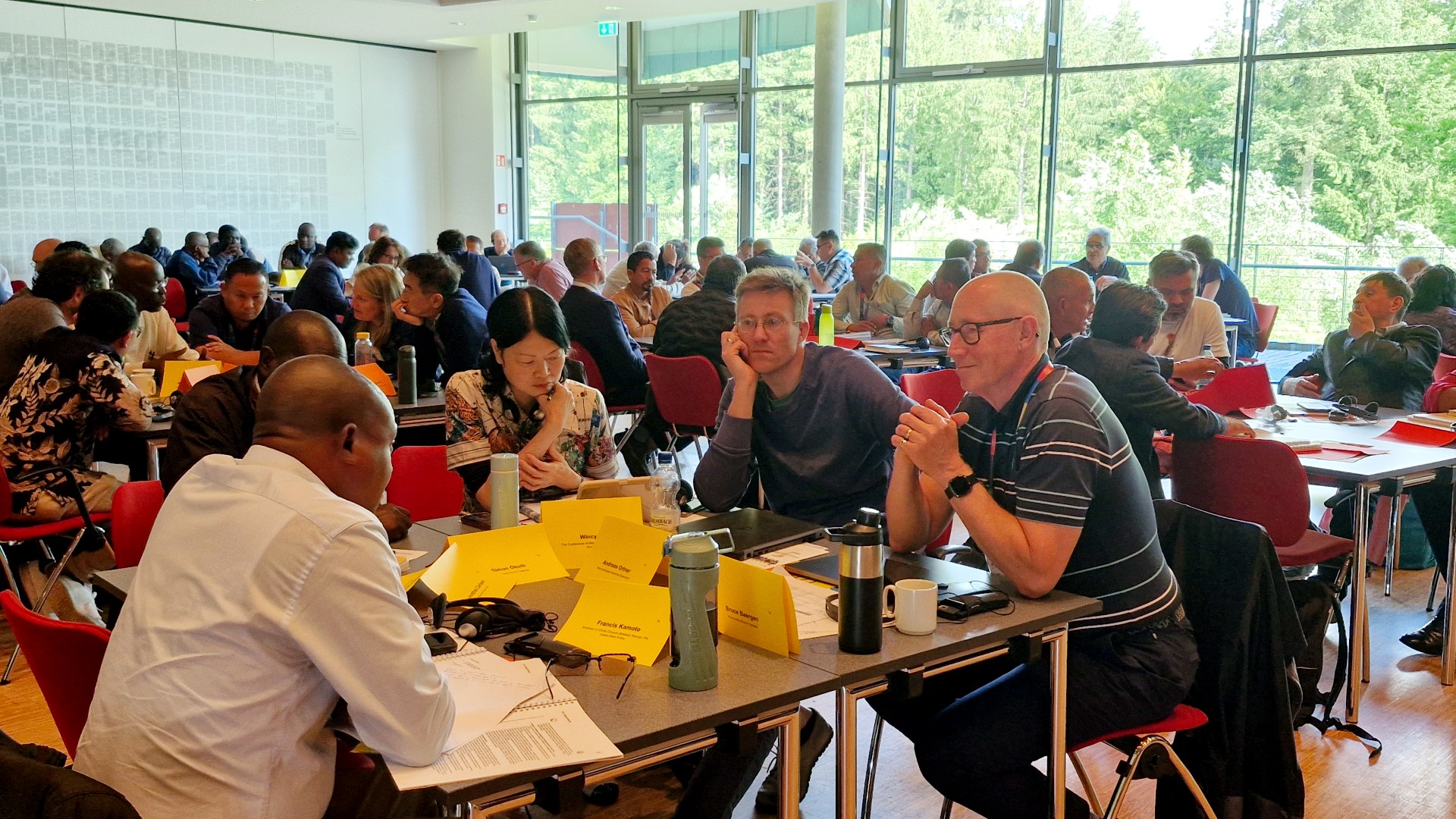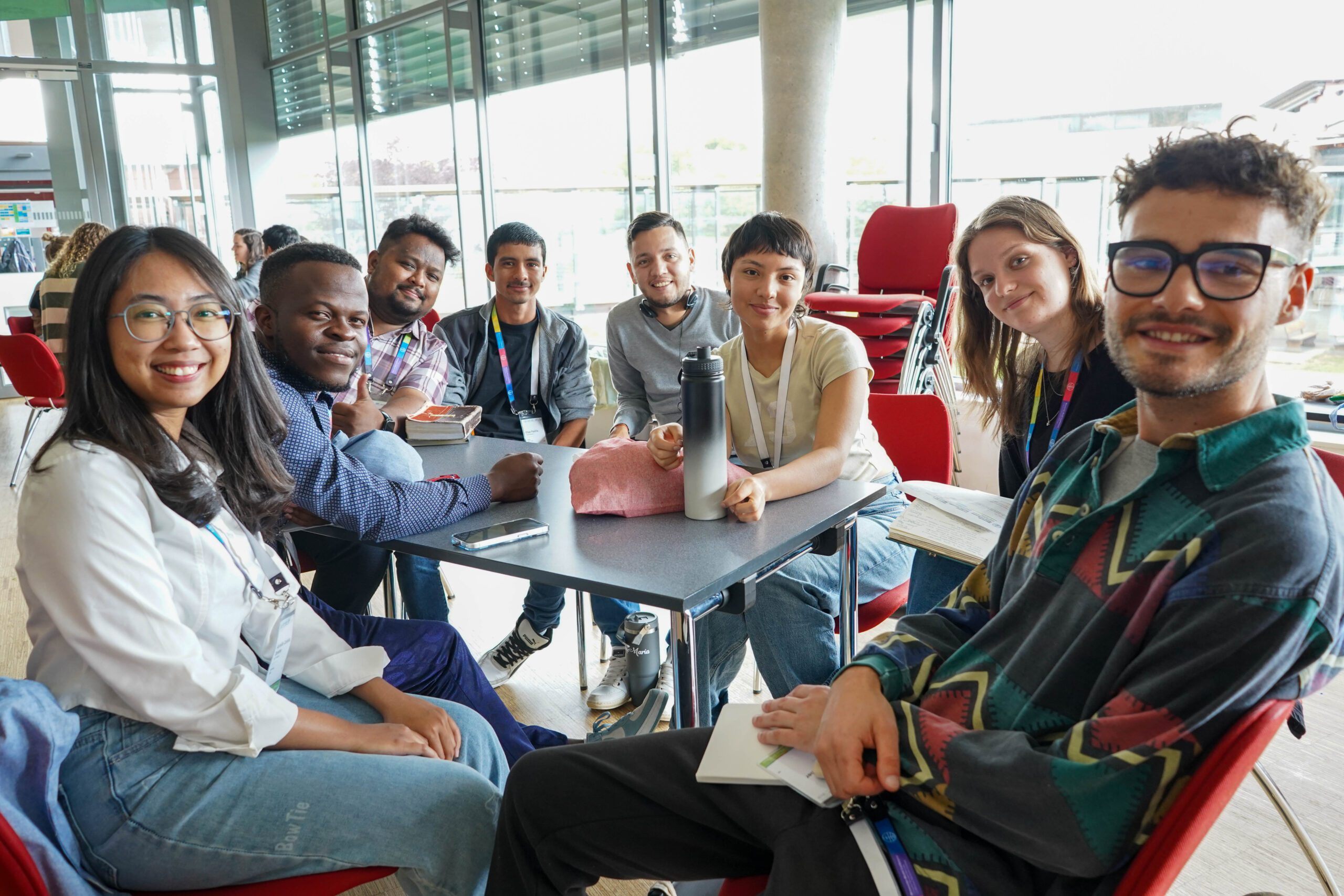-
Mentoring the next wave of global church leaders
From YABs to General Council: A path laid through mentorship “The strength of the young and the wisdom of the old, the Lord wants both,” said Timo Doetsch from Arbeitsgemeinschaft Mennonitischer Brüdergemeinden in Deutschland (AMBD) in Germany. He took to heart what church planter Lawrence Warkentin said to him many years ago – and so
-
A lifestyle of giving takes many shapes and forms
Young adults are ambitious, capable, and more educated than the previous generations, according to a 2025 study by Randstad. However, the job market is becoming more competitive, and many are struggling to find employment. Yet giving is a part of life as Christians. Young Anabaptists agree that financial giving is important. They recognize their local
-
Working hand-in-hand to serve God’s kingdom
“The Courage to Love” is still evident in our polarized world today. “Working for peace does not mean we are going to fold our hands, but we are going out there. Peace is action,” said Oscar Siwali (South Africa) of SADRA, a member of GAPN. The Global Anabaptist Peace Network (GAPN) hosted a webinar on 22 September 2025 in conjunction with Peace Sunday and the International
-
To make the mosaic visible
Siaka Traoré has been appointed an ex-officio officer for Mennonite World Conference as a representative for Africa, effective immediately.
-
Bridge builders
Changes on regional representatives team “I have witnessed firsthand the power of ‘Living out Unity’ amid diverse communities and the constant need for “Building Peace” through dialogue and understanding,” says Vikal Pravin Rao, incoming regional representative for South Asia. MWC’s regional representatives are part-time volunteers who develop and support relationships with MWC member, associate-member and potential-member churches;
-
Deep, spiritual transformation on YAMEN year
“I have always desired to see and understand the world beyond my immediate environment, to learn from diverse communities. When I learned about YAMEN’s vision for young people of global learning and service, I saw it as a platform that will expose, shape and equip me for the betterment of myself, the church and my community,” says Moses Johnson Jumbo. Moses Jumbo, a member from Mennonite Church, Inen district, Nigeria, served
-
Encyclopedia expands user access
“Let us not become weary in doing good, for at the proper time we will reap a harvest if we do not give up” (Galatians 6:9). This verse inspires the management board of GAMEO. In 2025 and 2026, the Global Anabaptist Mennonite Encyclopedia Online is focused on improving user experience and author engagement. One initiative
-
“I became a Mennonite in my heart”
Cynthia Peacock served Mennonite World Conference as regional representative to South Asia 2014–2025. She was also chair of the Deacons Commission from 2009–2015. At the General Council meetings in Germany in May 2025, Timo Doetsch (General Council delegate for Arbeitsgemeinschaft Mennonitischer Brüdergemeinden in Deutschland – AMBD) asked her to share her experience. Following Jesus as
-
A challenge and a prayer
“I always leave Online Prayer Hour feeling encouraged,” says Ginny Hostetler, Kitchener, Ontario, Canada. Every two months, Mennonite World Conference hosts this online gathering. Participants spend most of the hour sharing and praying together in small groups according to language. This September, breakout rooms were facilitated in English, French, Spanish, Hindi, and, for the first
-
YAMEN: Opening a window onto the global church
YAMEN 2024/2025 orientation at Cambodia. Photo: Sarah Sarauniya Adamu “This service experience, without a doubt, was a beautiful gift…. Upon returning [from my service assignment], I realized that my place was at home, with my faith community, but my heart burned to return to the Indigenous Mayan Popti’ communities where I had spent my time
-
No one was left behind
The General Council is the decision-making body of Mennonite World Conference. Using consensus decision making, they discern strategy, policy and statements that guide the global Anabaptist family. Out of 106 General Council delegates who were present at the triennial meetings in Germany in 2025, more than 60 were representing their church for the first time. (As
-
Young Anabaptists eager to encounter the global family
During the Global Youth Summit (GYS) in 2015 in Pennsylvania, USA, Mennonite World Conference (MWC) general secretary César García said, “If you want a revolution, ask someone young to lead.” This year’s GYS was the latest step in MWC’s journey of walking with young leaders in following Jesus together. From the creation of the GYS
